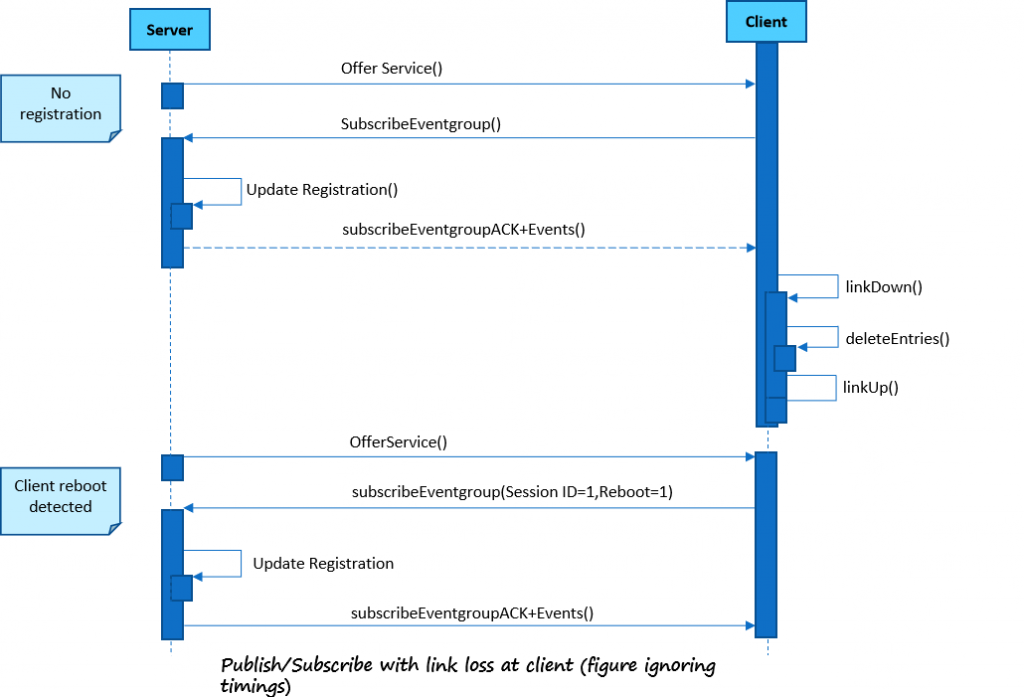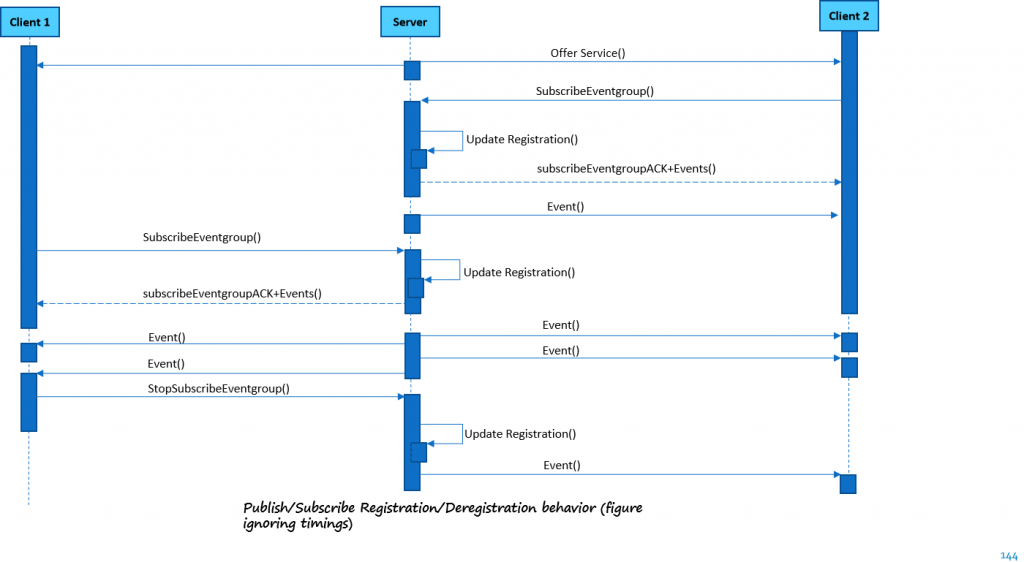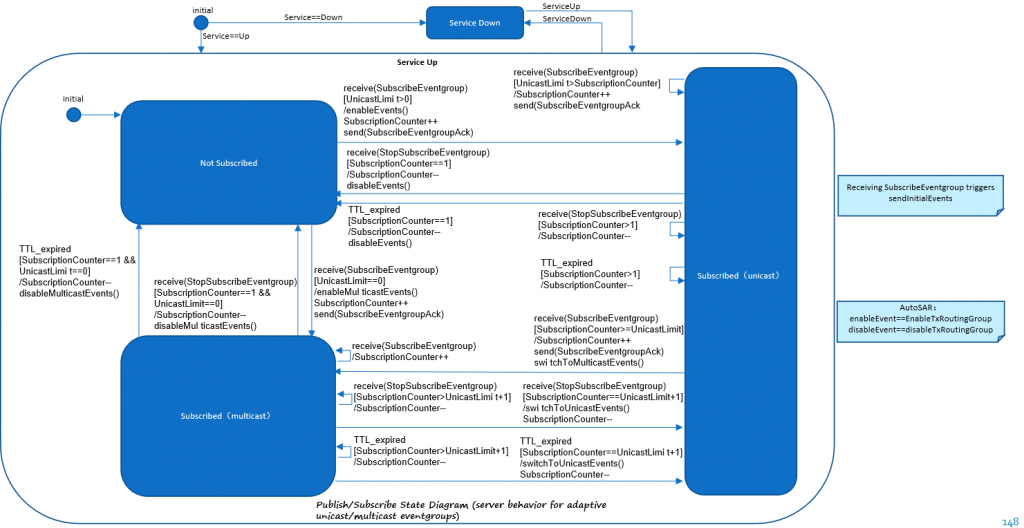Publish/Subscribe with link loss at client (figure ignoring timings)

Publish/Subscribe Registration/Deregistration behavior (figure ignoring timings)

Publish/Subscribe with link loss at Server (figure ignoring timings)

Publish/Subscribe State Diagram (server behavior for unicast eventgroups)

Publish/Subscribe State Diagram (server behavior for multicast eventgroups

Publish/Subscribe State Diagram (server behavior for adaptive unicast/multicast eventgroups)

Publish/Subscribe Example for Endpoint Options and the usage of ports
- Example
- following Figure shows an example with the different Endpoint and a Multicast Option:
下图展示了一个例子,使用不同的Endpoint和Multicast Option- The Server offers the Service Instance on Server UDP-Endpoint SU and Server TCP-Endpoint ST
服务器提供了一个服务实例,通过UDP-Endpoint (简称SU) 和 TCP-Endpoint ST(简称ST) - The Client opens a TCP connection
客户端打开一个TCP连接(Socket) - The Client sends a Subscribe Eventgroup entry with Client UDP-Endpoint CU (unicast) and a Client TCP-Endpoint CT
客户端发送一个Subscribe Eventgroup entry,带有客户端UDP-Endpoint (unicast)(简称CU)和一个客户端TCP-Endpoint (简称CT) - The Server answers with a Subscribe Eventgroup Ack entry with Multicast MU
服务器通过多播option(简称MU)回复一个Subscribe Eventgroup Ack entry
- The Server offers the Service Instance on Server UDP-Endpoint SU and Server TCP-Endpoint ST
- Then the following operations happen:
接下来这么运行:- The Client calls a method on the Server
客户端调用服务器端的method - Request is sent from CU to SU and Response from SU to CU
Request从客户端通过UDP发给服务器端,回复消息从服务器端通过UDP发回客户端 - For TCP this would be: Request dyn to ST and RESPONSE from ST to CT
- The Server sends a Unicast UDP Event: SU to CU
服务器端发送一个Unicast UDP Event:到客户端:SU到CU - The Server sends a Unicast TCP Event: ST to CT
服务器端发送一个Unicast TCP Event到客户端: ST到CT. - The Server sends a Multicast UDP Event: SU to MU
服务器端发送一个Multicast UDP Event到客户端:SU到MU
- The Client calls a method on the Server
- Keep in mind that Multicast Endpoints use a Multicast IP Address on the receiver side,i.e. the client, and TCP cannot be used for Multicast

